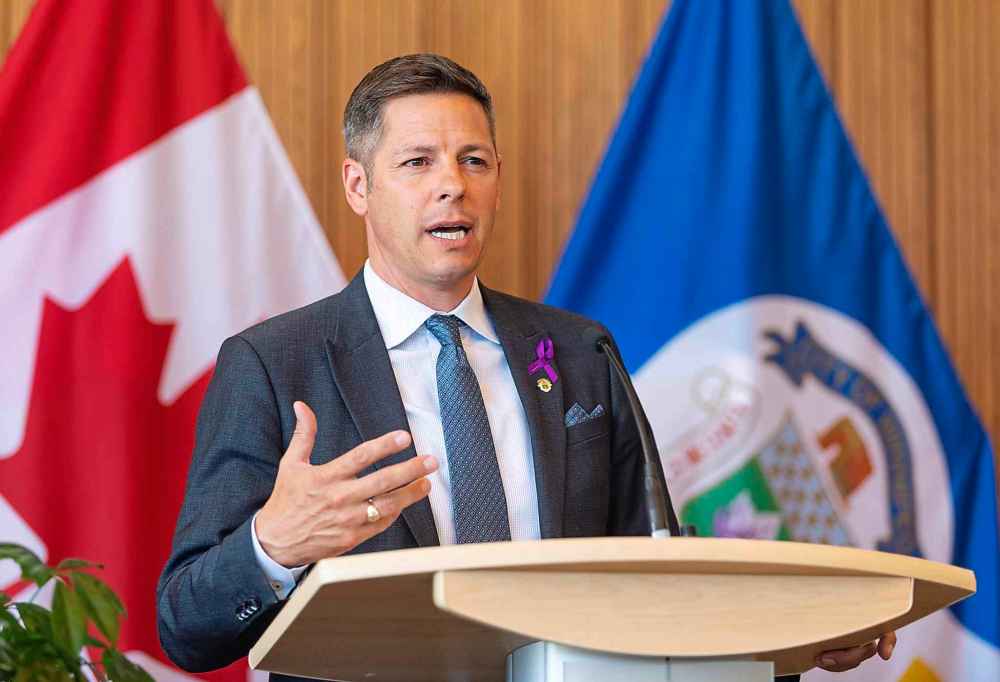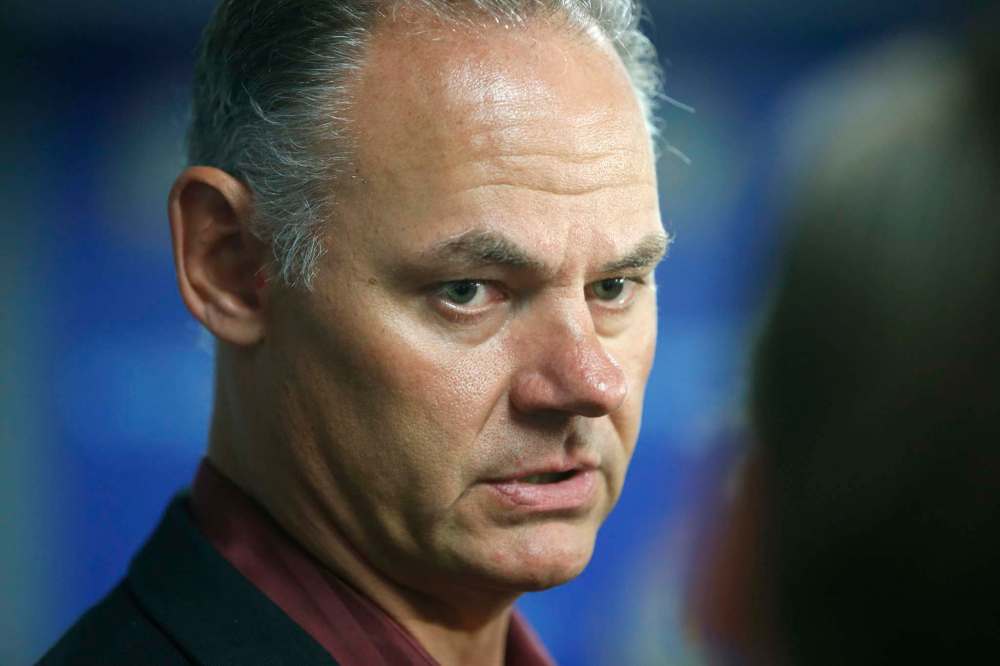City, police union near showdown on pension issues
Read this article for free:
or
Already have an account? Log in here »
To continue reading, please subscribe:
Monthly Digital Subscription
$0 for the first 4 weeks*
- Enjoy unlimited reading on winnipegfreepress.com
- Read the E-Edition, our digital replica newspaper
- Access News Break, our award-winning app
- Play interactive puzzles
*No charge for 4 weeks then price increases to the regular rate of $19.00 plus GST every four weeks. Offer available to new and qualified returning subscribers only. Cancel any time.
Monthly Digital Subscription
$4.75/week*
- Enjoy unlimited reading on winnipegfreepress.com
- Read the E-Edition, our digital replica newspaper
- Access News Break, our award-winning app
- Play interactive puzzles
*Billed as $19 plus GST every four weeks. Cancel any time.
To continue reading, please subscribe:
Add Free Press access to your Brandon Sun subscription for only an additional
$1 for the first 4 weeks*
*Your next subscription payment will increase by $1.00 and you will be charged $16.99 plus GST for four weeks. After four weeks, your payment will increase to $23.99 plus GST every four weeks.
Read unlimited articles for free today:
or
Already have an account? Log in here »
Hey there, time traveller!
This article was published 05/11/2019 (2227 days ago), so information in it may no longer be current.
Winnipeg police officers are facing a dramatic hit to the wallet.
A proposed overhaul of the police pension plan — outlined in an administrative report to the Nov. 12 executive policy meeting — would remove overtime hours as pensionable earnings (reducing the amount received in retirement), require a boost in member contributions to 11.5 per cent (from eight per cent, without any improvement in benefits), and shift the onus for unfunded liabilities from city hall solely onto individual members.
The moves will result in a dramatic savings for taxpayers, the report says.
“The Winnipeg Police Pension Plan is one of the most expensive pension plans in Canada, requiring significant financial support from the city,” states the report, which was released Tuesday morning and published on the City of Winnipeg website.
“Once fully implemented, these changes are expected to yield savings to the city of about $12 million per year.”

The public service is proposing to allocate $1.5 million — from elimination of OT as a pensionable earning — back to the Winnipeg Police Service, which was a commitment by Mayor Brian Bowman during the 2018 election campaign.
Proposed changes to early retirement provisions is expected to generate $5.5 million in annual savings, and a further $5.5 million annually is expected from rebalancing the contribution amounts.
On Tuesday, Bowman told reporters the police pension plan needs to be altered.
“If we don’t make changes now, they’re going to be more difficult down the road, and we have to think about the long-term sustainability of not just the police service, but our community as a whole,” the mayor said.
Bowman said the WPS will be free to determine how best to allocate the $1.5 million it will receive annually as a share of the pension plan changes, adding council will decide where to allocate the remaining estimated$10.5 million annually.
“It’s the most generous pension in the country. I want to see a smarter allocation of that money,” Bowman said. “Other savings could be used to help make investments that would benefit the overall health of our community.”
“The Winnipeg Police Pension Plan is one of the most expensive pension plans in Canada, requiring significant financial support from the city.” – Administrative report
The report states officials have been meeting with the Winnipeg Police Association since 2016, but the union representing some 2,000 officers and civilian support staff has been unwilling to adopt the proposals.
The public service is recommending council move ahead unilaterally, exercising what it believes is its authority according to the terms of the pension plan bylaw.
The WPA plans to challenge the move, stating it has a legal opinion which states such substantive changes can only be made through the collective bargaining process.
Maurice Sabourin, WPA president, said Bowman and city hall are “acting in bad faith,” adding the mayor supported a new police contract in 2017, when he described it as the “most sustainable” in almost 20 years.
“To do this at a time when Winnipeg is seeing an alarming spike in violent crime and is on track to set a new annual record for homicides shows the mayor doesn’t have a real handle on what is going on in the city,” Sabourin said in a statement. “This is a high-handed attempt by the mayor and the city administration to simply grab something which they could not achieve through negotiation.”

The WPA was formally notified in mid-August city hall intended to unilaterally implement the changes, which would go into effect in January.
Winnipeg interim chief administrative officer Mike Ruta told reporters the changes to the police plan would bring it in line with the Civic Employees’ Pension Plan, which covers all other unionized civic employees.
Ruta said the civic plan has a matching 10 per cent contribution from employees and city hall.
The police plan requires members to contribute eight per cent of their pensionable earnings, while city hall is currently contributing 18 per cent. The proposed rebalancing would see each side contribute 11.5 per cent.
aldo.santin@freepress.mb.ca
CoW Police Pension Revision Report November 2019











